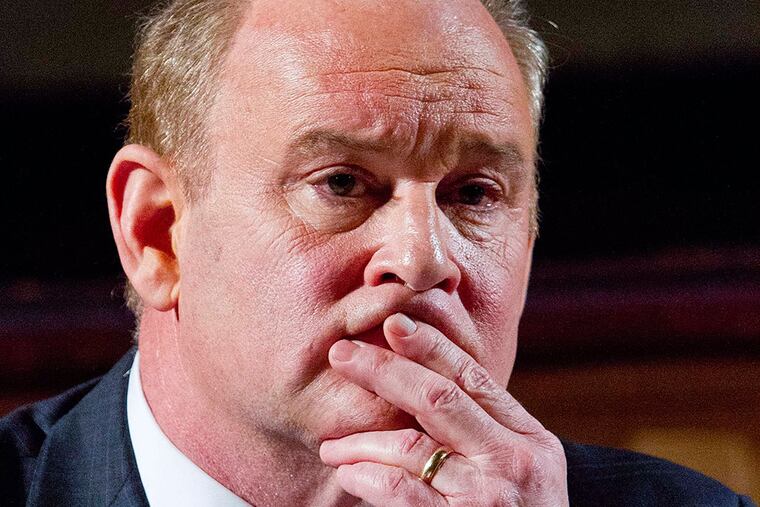In politics, money talks
Donald Trump isn't sucking all the air out of the 2016 presidential race. Give some credit to the disturbing influence of big money in politics.

Donald Trump isn't sucking all the air out of the 2016 presidential race. Give some credit to the disturbing influence of big money in politics.
In just the first half of this year, super PACs supporting presidential candidates have raised 10 times as much as they did by the same point in the 2012 presidential election cycle, according to a recent analysis by the Center for Responsive Politics. Finance, energy, and communications industry moguls head the list of extravagant donors whose largesse is shattering previous records.
Candidates embrace super PACs because traditional candidate and political action committees have to abide by legal contribution limits and frequent public disclosure requirements. Super PACs are allowed to raise unlimited funds and report spending and donations less often than traditional committees.
Even more dangerous than super PACs are the fake charities exploiting a loophole in the federal tax code to conceal donors. Their names may be hidden from the public, but the candidates know who their sugar daddies are. Their favors are too often returned in the form of lucrative government contracts and favorable policies for the special interests behind the biggest contributions.
The race for million-dollar donors has Democratic presidential candidate Hillary Clinton hypocritically campaigning against big money in politics even as her handlers make calls soliciting bigger checks. If she feels conflicted, her Republican opponents don't seem to: For years, their party has effectively blocked campaign-finance reform in Congress.
Voters can't help but notice that the quest for more and more campaign cash has affected candidates' behavior. Under pressure to raise larger sums for his Democratic gubernatorial campaign, former Pennsylvania Treasurer Rob McCord admitted that he bullied potential donors by threatening to use the power of his office against them. Meanwhile, U.S. Rep. Chaka Fattah (D., Pa.) is fighting charges that he broke the law to pay off an illegal campaign loan.
Given the difficulty of limiting donations in the wake of Supreme Court decisions equating political money with speech, the best remedy is to require frequent and thorough disclosure of who is donating what. At least the court left that possibility open in its naive rulings opening the floodgates to campaign cash.
In addition to timely disclosure of donations and spending during campaigns, there should be more rigorous requirements that donors and their associates reveal their lobbying activities and government contracts.
Although polls consistently show that the public wants to limit the influence of money in politics and government, politicians have been slow to respond. But there is plenty they can do without further congressional or court action.
For example, nothing is stopping Clinton from announcing that groups supporting her should disclose their donations online within 24 hours. That wouldn't violate the rules against coordinating her campaign with super PACs or so-called charitable organizations. But it would be a refreshing demonstration of her sincerity about campaign-finance reform, and it could embarrass others into doing the same.